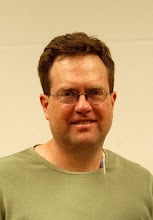 This photo shows my MTC district (Puente Alto) in early March 1979, shortly before we departed Provo for the mission field. Standing (L-R): Gene Whiting (Grand Junction, CO), Steve Arbuckle (Van Nuys, CA), Wayne Illes (Mississauga, Ont., Canada), Ronald Dunn (Tacoma, WA), Scott Kimball (Long Beach, CA), Joe Grigg (La Cañada, CA). Sitting (L-R): Steve Timm (West Valley City, UT), Mark Anderson (Sacramento, CA), and Kevin Kartchner (Albuquerque, NM).
This photo shows my MTC district (Puente Alto) in early March 1979, shortly before we departed Provo for the mission field. Standing (L-R): Gene Whiting (Grand Junction, CO), Steve Arbuckle (Van Nuys, CA), Wayne Illes (Mississauga, Ont., Canada), Ronald Dunn (Tacoma, WA), Scott Kimball (Long Beach, CA), Joe Grigg (La Cañada, CA). Sitting (L-R): Steve Timm (West Valley City, UT), Mark Anderson (Sacramento, CA), and Kevin Kartchner (Albuquerque, NM).I could probably write an entire book about the MTC and all of my compadres in Puente Alto, but for purposes of this blog, I think I'll pass. I will say the following, however:
1. The MTC often seemed to me to be calculated to impose the utmost in adversity on the missionaries passing through it, and time hasn't altered that perception. Thank goodness, however, that someone finally saw the light concerning the "Speak Your Language" program as it existed then: nowadays, according to my son Darren, the "requirement" to speak exclusively in one's mission language doesn't kick in until after four weeks, and there is no longer a daily self-rating system (an odious guilt-trip mechanism that instilled in most of us little more than a strong tendency to rationalize).
2. Puente Alto definitely was composed of a bright bunch of guys, which stoked a fairly stiff level of "competition" in the classroom. I remember that we were the guinea pigs for a pilot program called "Teaching Skills," which was an early, unsuccessful precursor to today's teach-it-in-your-own-words missionary lessons. We were supposed to go out and dazzle our trainer companions with what we'd learned, a misguided notion at best; the worst part was that after our mission president later formally instructed us to scrap the program, we had to go back and re-memorize the "canned" discussions, putting everything back in that "Teaching Skills" had cut out or rearranged.
3. Except for Gene Whiting, who served somewhere in California, all of Puente Alto went to the Chile Santiago South Mission (which, as other missions were created in the metropolitan area and the mission boundary gradually moved southward, later became known as the Chile Rancagua Mission).
4. My companion in the MTC was Wayne Illes (although Joe Grigg was our companion in a "threesome" for a couple of weeks after Joe's companion Elder Hubbard went home with health issues). I think Wayne and I got along pretty well, given that we didn't share too many interests; however, he almost certainly regarded me as overly serious and self-focused, whereas I thought he had a few too many distractions in light of the task at hand. I remember one occasion when Wayne wanted to go to the mall in Orem on p-day, whereas I wanted to stay at the MTC, write letters, and unwind a little. We tried to arrange for an unofficial "split" with two other missionaries so that each of us could do what he wanted; however, our branch president, Max Caldwell (who was later called as a general authority), found out about it and gave me a pretty good dressing-down, telling me that I'd have to go out into the world soon enough and that I might as well practice for it by accompanying my companion to the mall. (In that light, I find it extremely ironic that missionaries routinely aren't even allowed to leave the MTC these days except to attend the temple.)
5. Ron Dunn, our district leader, was thirty years old when he began his mission, and of course he seemed ancient to the rest of us. I think the church has since imposed a maximum "starting" age of 26 for (single) male missionaries, and thus Ron couldn't have served today.
6. Looking back, it seems odd that Steve Timm was the only one of us who was from Utah. I think it says a lot about how demographics in the church have changed in the last generation that a much-greater proportion of young men who serve missions now, at least from the U.S. and Canada, seem to be from Utah. (Not only are Utahns the most fertile of Mormons, but many church members who grew up elsewhere -- my four brothers being good examples -- later settled in Utah, all of which serves to explain why the Wasatch Front is a mass of humanity and a giant traffic jam.)
As I stated above, I could write a lot more -- and perhaps one day I will -- but this is a good place to stop.

